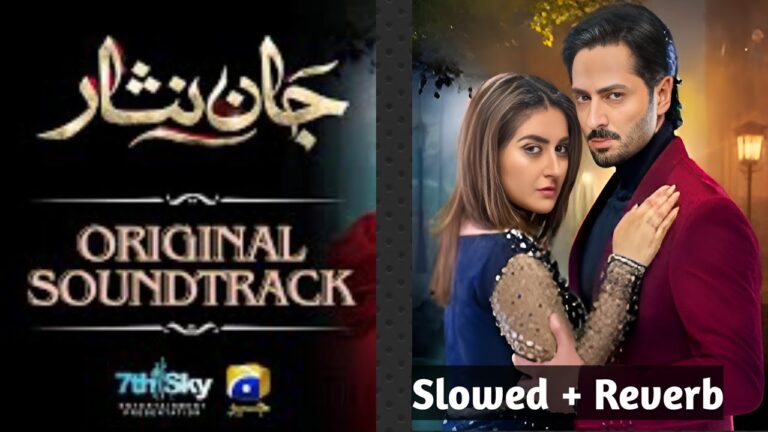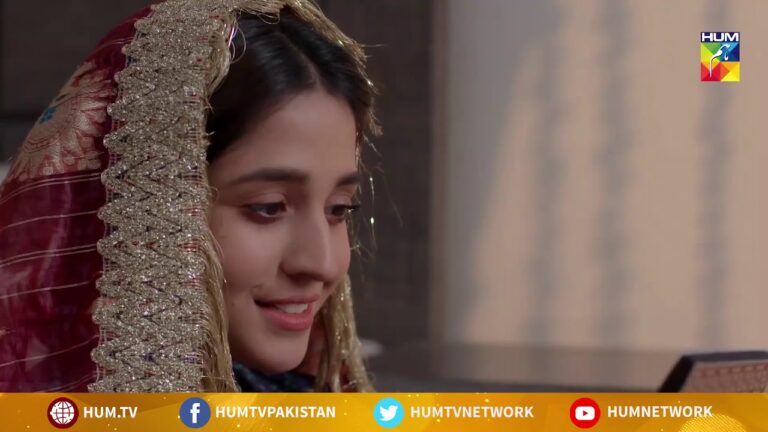Tishnagi Dil Ki Drama Review: Tishnagi Dil Ki (Urdu for “Thirst of the Heart”) is a Pakistani drama serial that explores the complexities of love, societal pressures, and unexpected turns of fate. This review delves into the plot, characters, and its social commentary, offering insights for viewers.
The Story of Tabaan and Zuhair
The narrative revolves around Tabaan (played by Anum Fayyaz) and Zuhair (played by Azfar Rehman), young lovers who dream of a future together. Their connection blossoms during their university years, promising a life filled with love and understanding. However, their journey takes a sharp turn when Zuhair’s family obligations clash with their aspirations.
Promises and Sacrifices
Zuhair’s mother has already promised his hand in marriage to her niece, Natasha (played by Kinza Hashmi) – a self-centered and arrogant woman whom Zuhair despises. Meanwhile, Tabaan’s family faces financial ruin, forcing her father to consider a desperate proposal.
A Twist of Fate
A wealthy friend of Tabaan’s father, Ausaaf Kiyani (played by Javed Sheikh), offers a solution – marriage to Tabaan. This unexpected proposal throws Tabaan into a difficult situation. Torn between love for Zuhair and the need to save her family, she makes a life-altering decision.
Characters and Conflict
-
Tabaan: Anum Fayyaz portrays Tabaan with strength and vulnerability. She embodies the sacrifices women make for their families, while yearning for love and happiness.
-
Zuhair: Azfar Rehman’s portrayal of Zuhair showcases the helplessness of individuals caught between love and family duty.
-
Ausaaf Kiyani: Javed Sheikh brings depth to the character of Ausaaf. While his intentions are initially unclear, his motivations and actions unfold throughout the drama.
Social Commentary
Tishnagi Dil Ki delves into social issues prevalent in South Asian societies:
-
Importance of Family Honor: The drama explores the concept of family honor and the pressure to prioritize it over personal happiness. Tabaan’s sacrifice reflects the societal expectations placed on women.
-
Economic Pressures: Financial hardship plays a significant role in the narrative. Tabaan’s family’s financial struggles highlight the challenges faced by those facing economic disparity.
-
Class Differences: The contrasting social classes of Tabaan and Ausaaf raise questions about societal norms and the complexities of relationships that bridge those divides.
A Story of Love and Resilience
Tishnagi Dil Ki is a captivating drama that goes beyond a simple love story. It explores the power of love, the weight of societal pressures, and the human spirit’s resilience in the face of adversity. The drama keeps viewers engaged with its twists and turns, leaving them to ponder the choices made by the characters.
Unveiling Ausaaf’s Motives:
Ausaaf Kiyani’s character presents a layer of intrigue. Is his proposal to Tabaan purely driven by a desire to help her family? The drama explores the possibility of hidden emotions. Did his past experiences or a sense of loneliness influence his decision? Viewers are left to interpret his actions and motivations, adding depth to the narrative.
Natasha’s Redemption (or Not?):
Natasha, initially portrayed as an antagonist, undergoes a transformation throughout the drama. Does she genuinely develop empathy for Tabaan’s situation, or does her self-interest remain the driving force? The writers leave room for interpretation, prompting viewers to question the sincerity of her change.
Love’s Many Facets:
Tishnagi Dil Ki portrays love in its various forms. The passionate love between Tabaan and Zuhair, the familial love Tabaan holds for her family, and the potential for companionship explored through Ausaaf’s proposal, all contribute to the richness of the story.
Unresolved Tensions:
The drama concludes, but certain tensions linger. Can Zuhair and Tabaan ever truly move on, or will their unresolved feelings continue to cast a shadow? Does Tabaan find solace in her new life, or does a yearning for her lost love persist? These unresolved questions spark audience discussion and add emotional weight to the narrative.
Beyond the Romance:
While romance is a central theme, Tishnagi Dil Ki delves into broader societal issues. The struggles faced by Tabaan’s family highlight the harsh realities of poverty and the sacrifices individuals make for survival. The drama also subtly critiques the objectification of women, particularly in Natasha’s portrayal.
A Reflection of Reality:
The drama’s portrayal of societal pressures resonates with viewers from similar cultural backgrounds. The characters’ struggles with family obligations, economic disparity, and social norms feel authentic, making the story relatable and emotionally engaging.
A Call for Empathy:
Tishnagi Dil Ki encourages viewers to develop empathy for the characters’ situations. Each individual is grappling with difficult choices and societal constraints. Understanding their motivations fosters a deeper connection with the narrative.
In Conclusion
Tishnagi Dil Ki is a recommended watch for those seeking a drama that blends romance, social commentary, and complex characters. The exceptional performances and thought-provoking themes leave a lasting impression, making it a worthwhile addition to your drama watchlist.










+ There are no comments
Add yours